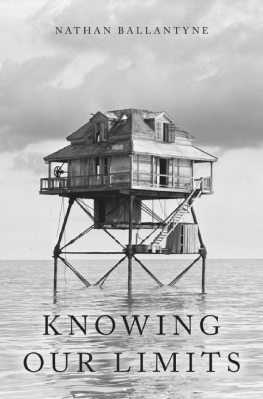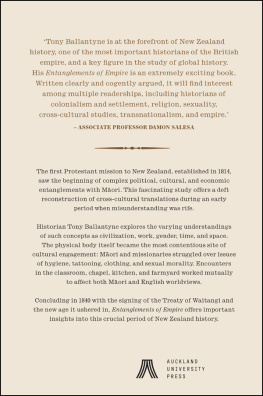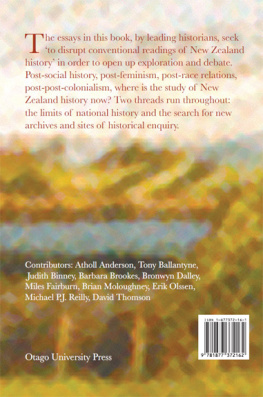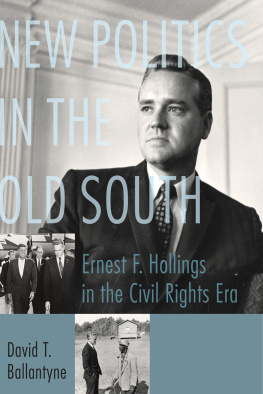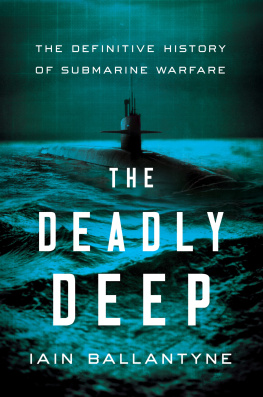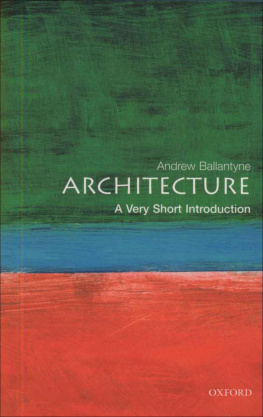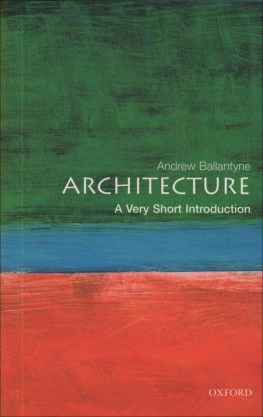Knowing Our Limits
Knowing Our Limits
NATHAN BALLANTYNE
Oxford University Press is a department of the University of Oxford. It furthers the Universitys objective of excellence in research, scholarship, and education by publishing worldwide. Oxford is a registered trade mark of Oxford University Press in the UK and certain other countries.
Published in the United States of America by Oxford University Press
198 Madison Avenue, New York, NY 10016, United States of America.
Oxford University Press 2019
All rights reserved. No part of this publication may be reproduced, stored in a retrieval system, or transmitted, in any form or by any means, without the prior permission in writing of Oxford University Press, or as expressly permitted by law, by license, or under terms agreed with the appropriate reproduction rights organization. Inquiries concerning reproduction outside the scope of the above should be sent to the Rights Department, Oxford University Press, at the address above.
You must not circulate this work in any other form and you must impose this same condition on any acquirer.
Library of Congress Cataloging-in-Publication Data
Names: Ballantyne, Nathan, author.
Title: Knowing our limits / Nathan Ballantyne.
Description: New York : Oxford University Press, 2019. |
Includes bibliographical references and index.
Identifiers: LCCN 2019006877 (print) | LCCN 2019980862 (ebook) |
ISBN 9780190847289 (cloth : alk. paper) | ISBN 9780190847296 (ebook) |
ISBN 9780190847302 (updf) | ISBN 9780190847319 (epub)
Subjects: LCSH: Knowledge, Theory of.
Classification: LCC BD201 .B35 2019 (print) | LCC BD201 (ebook) |
DDC 121/.2dc23
LC record available at https://lccn.loc.gov/2019006877
LC ebook record available at https://lccn.loc.gov/2019980862
For my family
My thoughts!It is the building a house for them that troubles me.
Joseph Joubert (17541824), Penses , published posthumously
Every thing has its own limits, a little centre of its own, round which it moves; so that our true wisdom lies in keeping to our own walk in life, however humble or obscure, and being satisfied if we can succeed in it. The best of us can do no more, and we shall only become ridiculous or unhappy by attempting it.... An overweening vanity or self-opinion is, in truth, often at the bottom of this weakness; and we shall be most likely to conquer the one by eradicating the other, of restricting it within due and moderate bounds.
William Hazlitt, On the Shyness of Scholars, 1827
Vanity and vexation close every inquiry: for the cause which we particularly wished to discover flies like the horizon before us as we advance. The ignorant, on the contrary, resemble children, and suppose, that if they could walk straight forward they should at last arrive where the earth and clouds meet. Yet, disappointed as we are in our researches, the mind gains strength by the exercise, sufficient, perhaps, to comprehend the answers which, in another step of existence, it may receive to the anxious questions it asked.
Mary Wollstonecraft, A Vindication of the Rights of Women , 1792
A mans got to know his limitations.
Clint Eastwood, in the 1973 action thriller Magnum Force
Contents
While writing this book, I accumulated debts to many people for helpful conversations and written comments on draft chapters. There are too many people to thank, but let me mention a few names here.
I am grateful to Alex Arnold, Andrew Bailey, Matthew Ballantyne, Michael Bergmann, E.J. Coffman, Stewart Cohen, Sorana Corneanu, Thomas Crisp, Carlo DaVia, Dennis Des Chene, Peter Ditto, Joshua Dolin, David Dunning, William Dyer, Ian Evans, Marcello Fiocco, Bryan Frances, Daniel Greco, Stephen Grimm, Michael Hannon, John Heil, Terry Horgan, Daniel Howard-Snyder, Xingming Hu, Tim Kenyon, Nathan King, Hilary Kornblith, Charlie Lassiter, Keith Lehrer, Kirk Lougheed, Michael Lynch, Jonathan Matheson, Andrew Moon, Blake Roeber, Patrick Rysiew, David Schmidtz, Norbert Schwarz, Roy Sorensen, Mark Timmons, Justin Tosi, Greta Turnbull, Joseph Vukov, and anonymous reviewers. A number of friends, former teachers, and colleagues shared insightful feedback on the project as well as gestures of encouragement: Jason Baehr, David Christensen, Paul Gooch, Peter King, Klaas Kraay, Sydney Penner, Andrew Rotondo, and Jada Strabbing. And I ought to single out three people who read more rough draft material than is right or safe: Peter Seipel, Shane Wilkins, and Benjamin Wilson. Peter and Shane commented tirelessly on the manuscript, made it better, and were sympathetic to the project when I found myself wondering what on earth I had gotten myself into. Ben offered wise counsel, keen questions, and support from false start, to start, to finish. His writerly powers and comedic instincts are matchless among former Junior Resident Fellows of Massey College.
Draft versions of different chapters were tested out on audiences at Boston University, Bowling Green State University, Loyola Marymount University, Ryerson University, University of Arizona, University of California at Irvine, University of Connecticut, University of Southern California, University of Tokyo, and Washington University in St. Louis. Thanks to audience members for discussions during Q&A sessions.
While I was at work on this project, my research assistants at Fordham University helped me hunt down sources and scholarly curiosities. They are Johnny Brennan, Noah Hahn, Allysa Lake, Joe Morton, Justin Reppert, Luke Schumacher, and Nicholas Sooy. Thanks to Alison Shea at Fordhams Law Library for her help cracking the case of the butcher jurors. For ad hoc translation advice, I turned to Carlo DaVia, Peter King, and Shane Wilkins. Johnny Brennan translated from German the Goethe epigraph in . Suzie Appenzeller and Margaret Donovan, who expertly manage the day-to-day affairs of Fordhams Philosophy Department, were invariably knowledgeable and kind whenever I needed help.
I taught graduate seminars at Fordham where my PhD students heard about some of the arguments that ended up in these pages. Thanks to all of my students for their questions and input, especially Samuel Kampa and Coran Stewart, who gave me sharp and detailed feedback on draft chapters. Sam took a careful look at the whole manuscript during the copy-editing stage and beat me in a contest to catch my typos.
I am grateful both to my editor at Oxford University Press, Lucy Randall, for enthusiastically supporting my project, and to Hannah Doyle for her guidance throughout the production process.
Earlier versions of a few chapters appeared elsewhere. is a lightly brushed-up version of Epistemic Trespassing, 2019, Mind 128 (510): 367395. For permission to reproduce some material from those articles, I acknowledge Cambridge University Press, John Wiley & Sons, and Oxford University Press. Thanks also to Warner Bros. Entertainment Inc. for allowing me to use as an epigraph an excerpt from the 1973 film Magnum Force .
My work was generously supported by the John Templeton Foundation, the University of Connecticuts Humanities Institute, and Fordham University. Thanks are due to Alex Arnold, Eva Badowska, John Churchill, John Drummond, John Harrington, Michael Lynch, and Michael Murray.
If I could sit at my desk and start again on the first blank page, I suspect I would do it all differently, except for the music that animated my writing sessions. I am partial toward North German musicSweelinck, Schtz, Buxtehude, Bruhns, and Johann Sebastian Bachas well as Canadian musicOscar Peterson, Glenn Gould, Lenny Breau, Angela Hewitt, The Tragically Hip, Propagandhi, and The Weakerthans.

